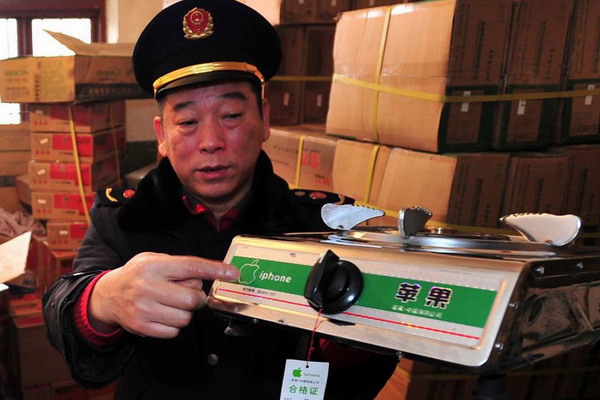The Seattle Times has a front page
article that asks the question who is inspecting the emerging marijuana-brownie industry, AKA "medibles"? (Edible medical marijuana.) And it answers, why, the very people who are making dope-soaked stoner food are doing their own policing. Yikes!
The Times recommends the powers that be get busy to assure this emerging market is well regulated, for our health and safety.
Meanwhile, buried on other pages is the story of
how a nasty deadly disease was included in FDA inspected steroid shots.
As many as 13,000 people received steroid shots suspected in a national meningitis outbreak, health officials said Monday. But it's not clear how many are in danger.
Officials don't how many of the shots may have been contaminated with meningitis-causing fungus tied to the outbreak...
The CDC count of cases reached 105 on Monday, including eight deaths. A ninth death was reported late Monday by a Nashville, Tenn., hospital.
Now, I am being unfair in saying "FDA inspected" because the FDA inspects almost nothing, contrary to popular iconography. Anyone who thinks the FDA in anyway assures anything good simply has not run the numbers. Here is something I posted earlier in the year, in relation to one fraction of their duties, and that is inspecting imported food. With imported food, the FDA inspects about 1.5 pounds of food out of every million imported. Feel safe? And we have not begun to talk about inspecting drugs, too, in this analysis.
Let’s run some numbers:
2009 FDA had “about”(they don’t know) 8800 employees and a budget of 2.4 billion. This means each FDA employee costs the taxpayers about $272,727 a year. Extrapolating from these facts, let’s say in 2010, they had 12,100 employees, given a budget of $3.3 billion. That is about a 50% increase, so now they should be able to inspect 1.5 pounds in a million. With their 2011 budget of over $4 billion, they nearly double their 2009 capabilities, so they can inspect almost 2 pounds per million, with 14,666 employees.
Let’s get serious: If we believe inspections matter, we want at least 10% inspection right? That would be 100,000 pounds per million. So we can reckon with a 2011 budget of $4 billion, and 14,666 employees, to get from 2 pounds to 100,000 pounds per million, we need to bump this up 50,000 times. OK.. so to get where we inspect 10% of the imports (and note this is only the imports, let alone domestic inspection), or in other words let 90% of our imported food slide by uninspected, we need a FDA budget of 200 Trillion dollars (with a T) and 733 million inspectors, that is twice the population of USA today. Better open those borders, and hire illegal aliens, if we want to get serious about food safety.
Of course, every cook inspects every meal, so we need no FDA whatsoever. The FDA is just the TSA groping dead animals. Why do we pretend the FDA can enhance food safety when they cannot, why do pretend cooks cannot when they do?
But back to the medibles article:
A small group, including medibles makers and testing labs, are making the move to self-regulate.
***Exactly. Who is more motivated to assure quality?***
Guidelines from the group, the Coalition for Cannabis Standards and Ethics, include business basics: Pay all taxes. Get food-handler permits. Follow Food and Drug Administration labeling standards. Don't produce anything requiring refrigeration, or hot handling, in a personal kitchen.
***Oops. They made a mistake there. None of those entities provide any value. Here they go too far.***
Those standards, however, are voluntary,
***Of course...***
not widely followed,
***How do you know this, Seattle Times? Prove it.***
and they don't provide any legal protection from state prosecution, let alone federal charges.
***Neither does being in compliance with the FDA. Compliance provides no protection in the law.***
Ironically, that has likely helped dissuade bigger medibles manufacturers, from California or Colorado from moving in. Tripp Keber, managing director of Dixie Elixirs & Edibles, Colorado's largest medibles manufacturer, said Washington is an attractive market, but its laws are too loose to justify investment. "I'm not going to risk breaking the rules in Washington and putting the mothership at risk," said Keber.
***Good. By keeping the regulation queens trembling in Colorado, the free market Washington State businesses might thrive better faster. This is an excellent argument for free markets.***
Chaney, of Dream Cream, is also leery. He said he asked state agriculture and county health officials about inspection. Neither would provide guidance, let alone inspections.
***Mr. Chaney! Ask not what your government can do for you, but what you can do for your customer!***
After losing access to the commercial kitchen in Seattle, he has stopped making cannabis-infused drinks, which require refrigeration. In his beach cabin, Chaney focuses on capsules made from a coconut-oil cannabis extract.
***Dude! We need more of this... This is an excellent article for deregulation of medicine. Eliminate the FDA immediately!***
 |
| http://www.theweedblog.com/how-to-make-the-perfect-marijuana-brownies/ |
Feel free to forward this by email to three of your friends.

